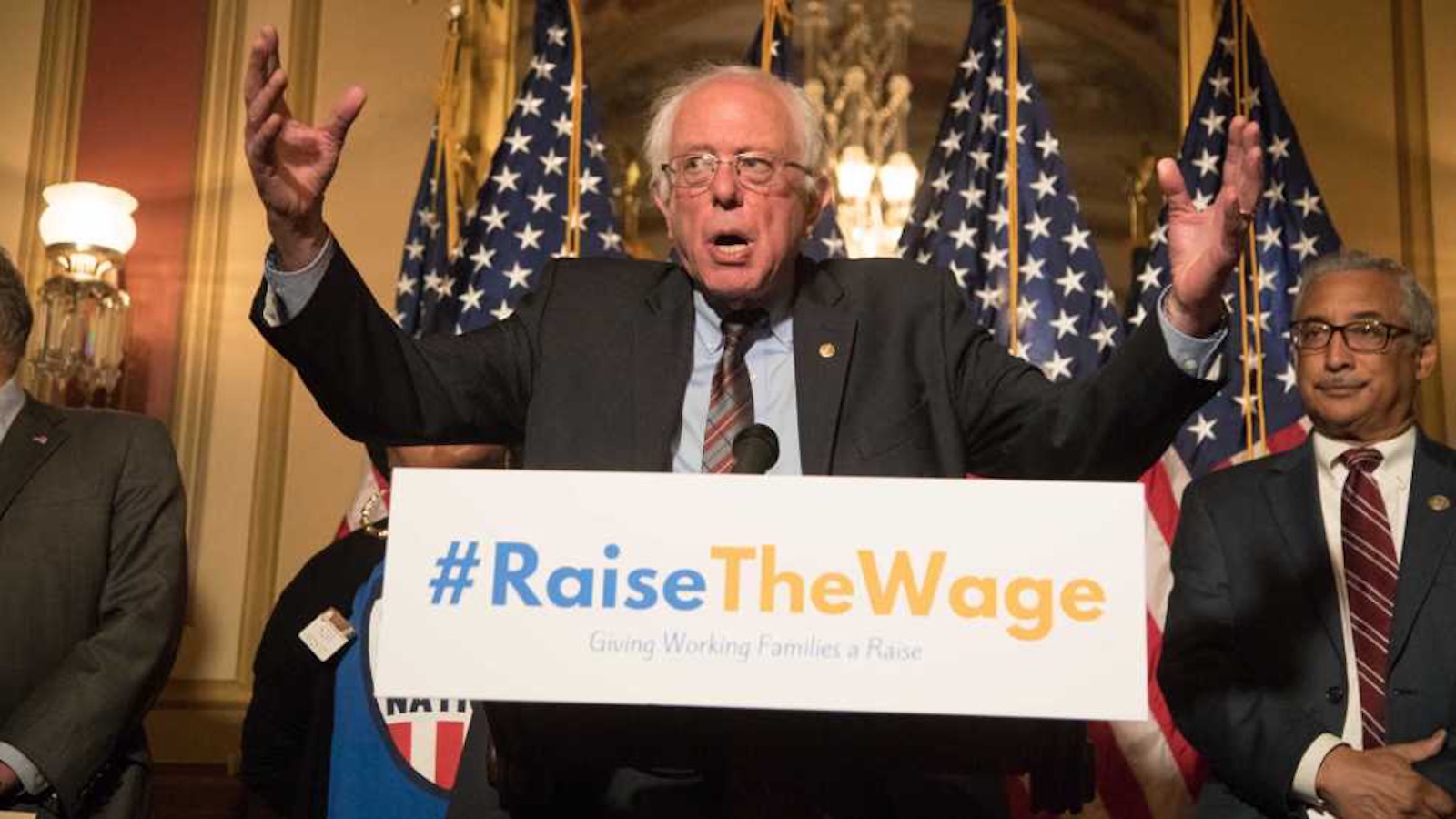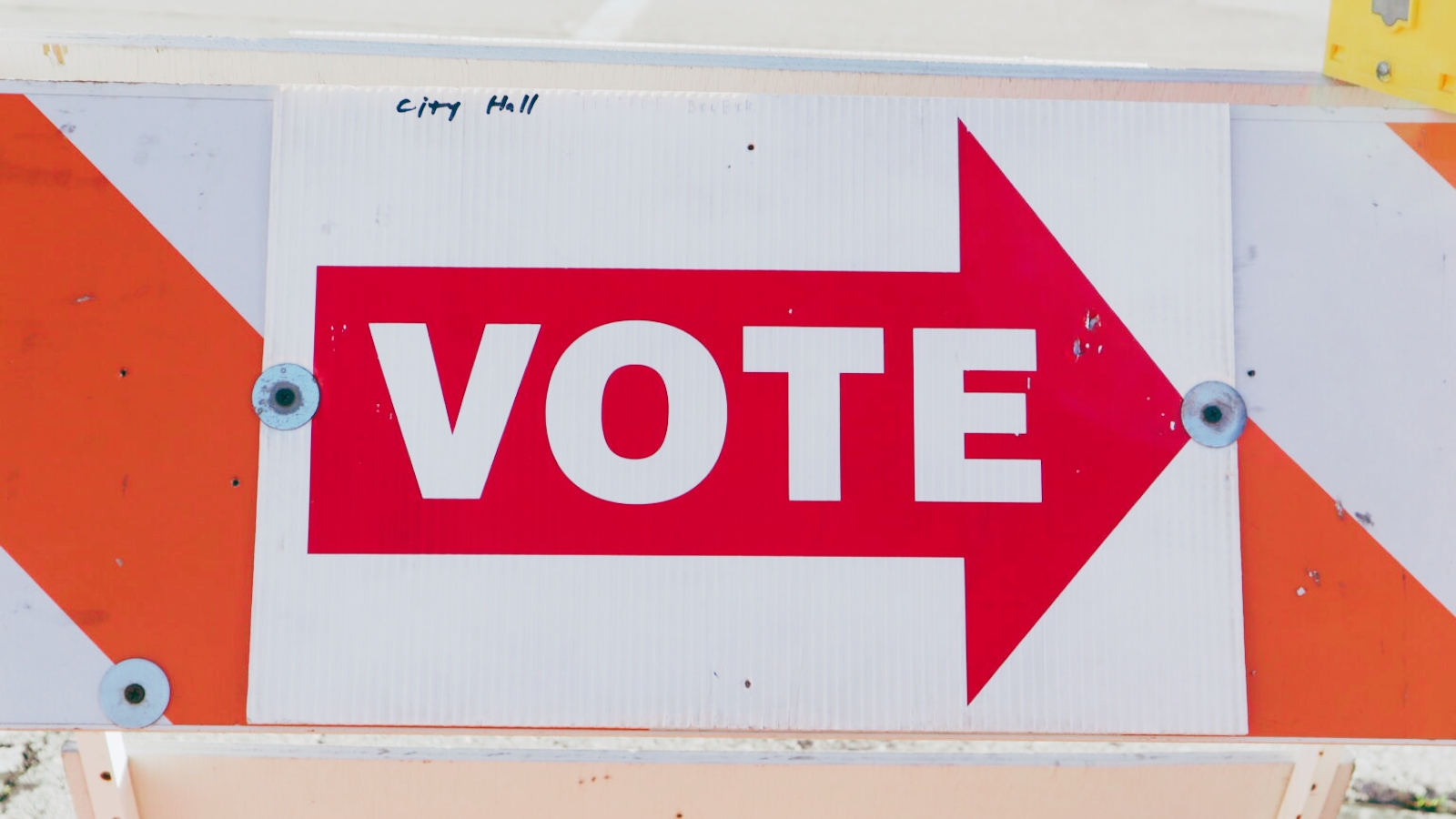
Feel the “Bern” of a Minimum Wage Hike
Ayn Rand once said “we can evade reality, but we cannot evade the consequences of evading reality.” The mother of objectivism eloquently warned us about the repercussions of denying life as it is because she knew that economic facts do not shape themselves to match people’s feelings or laws created by self-serving men. Presently, understanding the spirit of Ayn Rand’s words is becoming increasingly important as the Democratic Party candidates seemingly are promising everything to every person in America with blatant disregard to our country’s economic reality. No word yet on what day of the week the government will provide “free” pizza parties, but I’m sure this notion might show up on the next Democratic debate.
Sometimes a political attempted solution to a problem makes the problem worse, as a type of unintended consequence, and every Democratic candidate’s platform from Warren to Sanders to Biden is subject to that—something known as the cobra effect. Even when actions and ideas are theoretically supposed to serve the greater good, if they are not supported in concrete and sound economic reasoning, the best intentions can pave the pathway to economic destruction and ruin.
Bernie Sanders and his supporters personally felt the burn of the unintended consequence of his socialistic “living wage” theory firsthand when it was exposed that he himself was not paying his staffers a “living wage” of $15/hr after staffers were working hundreds of hours in overtime. It is shocking that “the man of the people,” a passionate advocate for socialism and redistribution of wealth, ironically, chose not to increase the wages of his devoted staffers, but instead chose to cut their hours to meet the $15/hr requirement. This decision is coming from a man whose wealth is estimated to be at least 2 million dollars, and a candidate who raised nearly 6 million dollars in 24 hours after launching his 2020 presidential run, as well as 18 million dollars in three months of campaign; yet, does not have money to give to the people responsible for his campaign’s success.
If the burden of paying $15/hr to employees was quite heavy on Sen. Sanders, even with all the money he raised, imagine the burden for all of the small and medium-sized businesses in the entire nation. Entrepreneurs usually start their businesses with a dream and a debt, while politicians start their campaigns with lies and millions in donations. It is a no brainer who has an easier start.
The important question to ask Sen. Sanders is why should the minimum wage stop at $15/hr? Why not $100/hr? The reason is quite simple. Artificial raises (aka minimum wage increases by legislation) disregard one of the ten fundamental laws of economics—productivity is the actual economic factor that determines the wage rate, not legislation. So any wage increase that is not backed up by an increase in productivity is likely to actually cause workers to lose money, and as a consequence of that, workers may have to face the maximization of unemployment and poverty.
What can we learn from the past?
Congress enacted legislation in order to raise the minimum wage from $1.25/hr to $1.40/hr in February 1967, and then proceeded to raise the minimum wage again from $1.40/hr to $1.60/hr in February of 1968. That was an increase of 28 percent. This wage hike caused negative employment effects for low-skilled workers, especially for teenagers as the graph below demonstrates:

The increase in the minimum wage back in 1968 was 28 percent, and the cobra effect revealed itself in its plenitude since the consequences of the wage raise were outstandingly negative on teenager employment. Now, if the current Congress was to enact legislation driving the federal minimum wage from $7.25/hr to $15/hr, that would mean an increase of about 106.9 percent, which could lead to a bigger unemployment rate and possibly an economic stagnation.
Another unintended consequence of artificially increasing the minimum wage is hurting low-income workers since a high minimum wage hinders the way for beginners to get access to more opportunities that the market would offer if only the minimum wage was not a financial obstacle for business owners. Evidently, a rising tide raises all boats when the tide is a natural market reaction, not when a government dictates prices for the services of others.
A lesson from Seattle, WA.
Seattle, the home of coffee, grunge, flannel, and the Seattle Minimum Wage Ordinance, raised the minimum wage from $9.47/hr to $11/hr in 2015 and from $11/hr to $13/hr in 2016. The National Bureau of Economic Research (NBER) developed research based on the data provided by Washington State in order to obtain information from the outcomes of such policy.
In the conclusion of the aforementioned research, NBER reported their findings and although numbers and outcomes may vary from location to location in economic analysis, the results demonstrate for the Seattle case that:
Importantly, the lost income associated with the hours reductions exceeds the gain associated with the net wage increase of 3.2%. Using data in Table 3, we compute that the average low-wage employee was paid $1,900 per month. The reduction in hours would cost the average employee $130 per month, while the wage increase would recoup only $56 of this loss, leaving a net loss of $74 per month, which is sizable for a low-wage worker. NBER, p. 38.
The graphs below show the results found in the NBER’s research (p. 57) regarding the average wage, hours worked, and number of jobs.



The results shown above reflected the Seattle market behavior when the city ordinance artificially raised the minimum wage. As you can infer from Panel A, the average wage obviously increased significantly after the ordinance was enacted. However, at the same time, the number of hours worked (Panel B) and the number of jobs (Panel C) also decreased significantly.
If you pay attention to the comparison between Seattle and Synthetic Seattle (blue line), given that the first shows reality as it is, and the latter demonstrates what the results would be without the effect of the city’s ordinance minimum wage raise, it is possible to conclude that if the city’s ordinance had not been enacted, thus not raising the minimum wage, the number of work hours and jobs would not have been cut as drastically as it was with the city’s ordinance operating in full effect on the market.
The whole nation should acknowledge and understand what happened in Seattle before supporting any type of minimum wage policies. Demonstrably, in this case, the overall outcome of the artificial increase of the minimum wage was egregiously negative on the workers’ wages since the minimum wage increase left a net loss of $74 per month. In plain English: workers lost money with a minimum wage hike.
An awakening message to voters
As a nation we have witnessed the bad outcomes of when legislation tries to artificially replace the laws of economics. Although government may enact laws that dictate a minimum wage rate, it cannot force employers to hire at that minimum wage rate all the individuals who were formerly employed at wages below the minimum. The objective data is crystal clear and it gives us a powerful message that we should listen to: when minimum wage is increased artificially (via legislation), unemployment goes up and work hours are cut. Those are self-evident facts that no presidential candidate can objectively debunk, no matter how hard the Democratic Party wants you to believe that a higher minimum wage would make you richer.
There is a plethora of reasons why politicians should not be allowed to randomly apply price tags on our abilities to execute financially rewardable tasks, and perhaps it is time we realize it is not only immoral for C to dictate unilaterally private financial agreements between A and B, but more importantly, we all shall acknowledge the fact that an artificial minimum wage increase merely carries a heavy financial loss and a decrease in job opportunity to workers while it is disguised as political good intention.
Free the People publishes opinion-based articles from contributing writers. The opinions and ideas expressed do not always reflect the opinions and ideas that Free the People endorses. We believe in free speech, and in providing a platform for open dialogue. Feel free to leave a comment.



